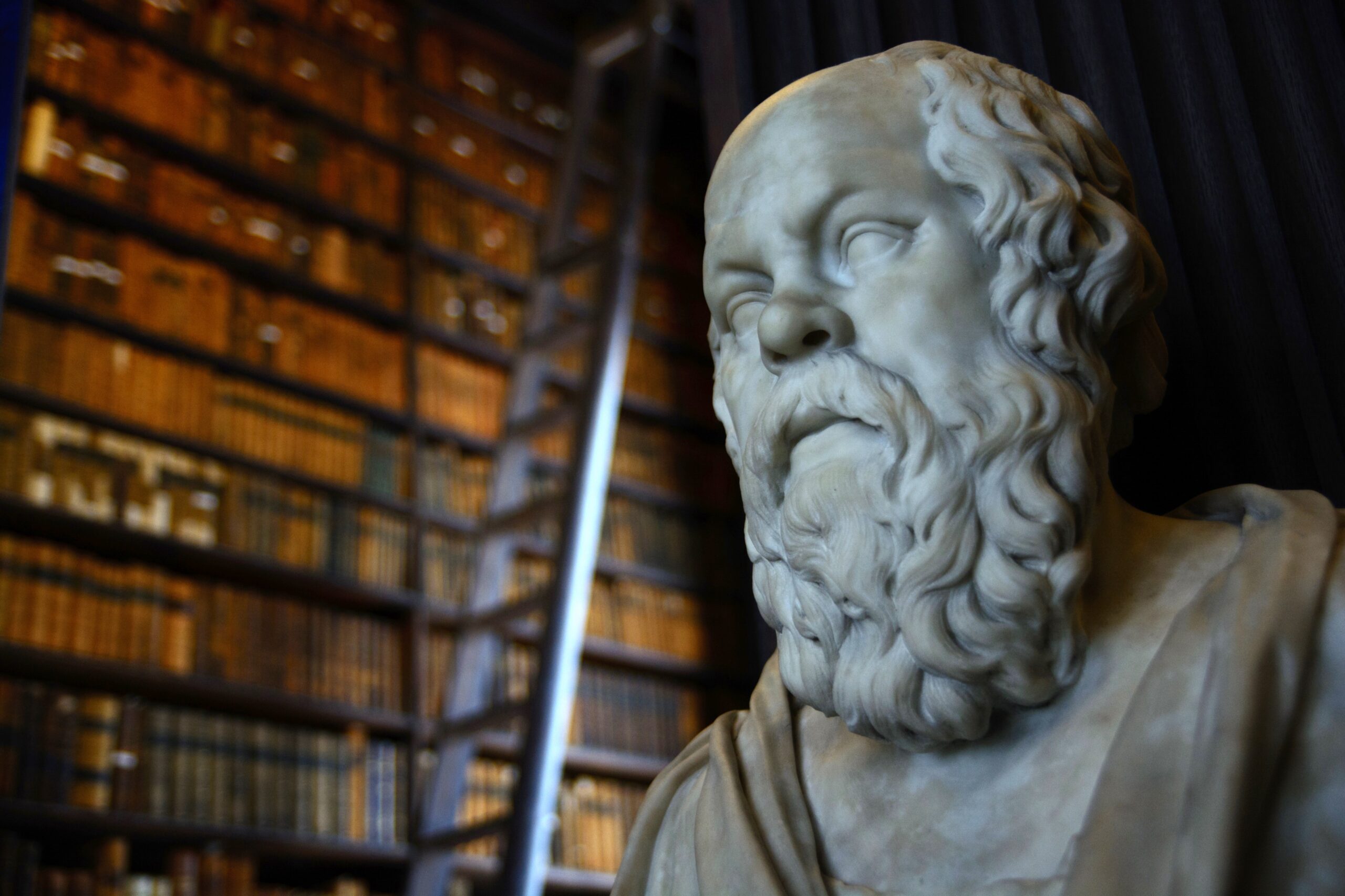 Straight to the questions.This initial group is about an atheist claim. Not a familiar one. Essentially, the atheist asks for evidence for God and the Christian then goes on to give arguments for God. The atheist then responds arguments aren’t evidence. This is principally the tag line for a channel called Deconverted Man, I haven’t watched much of his stuff but it is clear that he espouses that view from his comments on apologists channels alone. So, after he or any other atheist makes that claim, the Christian doesn’t have a response and they pronounce triumph over them. The question is, how does the average Christian respond to the claim that arguments aren’t evidence? What’s the counter play?
Straight to the questions.This initial group is about an atheist claim. Not a familiar one. Essentially, the atheist asks for evidence for God and the Christian then goes on to give arguments for God. The atheist then responds arguments aren’t evidence. This is principally the tag line for a channel called Deconverted Man, I haven’t watched much of his stuff but it is clear that he espouses that view from his comments on apologists channels alone. So, after he or any other atheist makes that claim, the Christian doesn’t have a response and they pronounce triumph over them. The question is, how does the average Christian respond to the claim that arguments aren’t evidence? What’s the counter play?
This next one is courtesy of a newer atheist channel: Bitchspot Blog. A small atheist channel that basically picks an apologetic video and rants and raves about how wrong it is and how stupid Christians are and how apologists are all fallacious liars. He uploads three times a week. The claim (found in a response to an overview of the freethinking argument) is Philosophy can’t prove anything/say anything about reality”. It continues saying that Christians “hide in philosophy” because they will never be supported by science. “You can’t philosophise a pink dolphin into existence,” he says. So, again, how does the average Christian respond to something like this? What is the counter play?
Now of all this talk of the efficacy of arguments and philosophy let’s switch it up. Why do apologists not just cut to the chase and just use miracles as evidence for God? Miracles seem like the cut and dry evidence atheists want and can’t be accused of being philosophy (and thus “ineffective) or an argument (and thus “not evidence’). Say there was a mass apparition of Mary, wouldn’t that count as evidence for religions that mention Mary? So why don’t we see debates over a certain miraculous event? Why do apologists not use specific miracles as arguments for Christianity?
*Andro
 I almost didn’t make a Q&A Article out of this because the arguments here are so dreadful, so awful, that I thought it would be an utter waste of time. But the anti-philosophy behavior is so prevalent among YouTube, Twitter, and Facebook atheists (and, unfortunately, even Christians!) that I thought it might not be such a bad idea to write yet another post about why it’s foolish to diss philosophy, claim to have no need for it, say it’s inferior to science, or as Stephen Hawking said “is dead.”
I almost didn’t make a Q&A Article out of this because the arguments here are so dreadful, so awful, that I thought it would be an utter waste of time. But the anti-philosophy behavior is so prevalent among YouTube, Twitter, and Facebook atheists (and, unfortunately, even Christians!) that I thought it might not be such a bad idea to write yet another post about why it’s foolish to diss philosophy, claim to have no need for it, say it’s inferior to science, or as Stephen Hawking said “is dead.”
The Department Of Philosophy (philosophy.fsu.edu) defines philosophy as follows; “Quite literally, the term ‘philosophy’ means, ‘love of wisdom.’ In a broad sense, philosophy is an activity people undertake when they seek to understand fundamental truths about themselves, the world in which they live, and their relationships to the world and to each other. As an academic discipline philosophy is much the same. Those who study philosophy are perpetually engaged in asking, answering, and arguing for their answers to life’s most basic questions. To make such a pursuit more systematic academic philosophy is traditionally divided into major areas of study.”1
The article goes on to list several areas of philosophy such as “Epistemology”. The article says that “Epistemology is the study of knowledge. It is primarily concerned with what we can know about the world and how we can know it. Typical questions of concern in epistemology are:
- What is knowledge?
- Do we know anything at all?
- How do we know what we know?
- Can we be justified in claiming to know certain things?” 2
Metaphysics is another branch of philosophy that the aforequoted Department Of Philosophy article mentions, and a number of metaphysical topics include the existence of God, the nature of truth, the nature of free will (how it’s defined and whether or not people have it), and several others.
Ethics is yet another branch of philosophy the aforementioned article lists. Ethics involves answering questions of morality such as “Is there objective morality?”, “How can we know what is right from what is wrong?”, “If morality is objective, what makes is objective?”, and then you have your trolley problems and other moral dilemmas and how you ought to solve those.
Science – the end-all be all epistemology of many atheists – cannot answer any of these questions. They cannot even get off the ground. Science is the study of the natural world. Scientists gather data, perform experiments, make testable hypotheses, and write papers on their findings that then get peer reviewed by other scientists. Science can answer questions like “Did the universe begin?”, “What are the necessary pre-conditions of life?”, “Do heavier objects fall faster, slower, or at the same speed as lighter objects?”, “What is the nature of gravity near a black hole?”, and so on. But it can’t answer questions like “Is there objective morality?”, “Are some beliefs properly basic?”, “Is there a God?” I think science can provide evidence for premises in philosophical arguments (e.g Big Bang cosmology and the second law of thermodynamics establishing the second premise of the Kalam), but science without being coupled philosophy can’t say anything about God.
Making science your end-all be all epistemological framework is just fallacious. To everyone who says “Science is the only way to know truth”, I just ask them a simple question, “What scientific experiment did you perform to verify that statement.” After about 10 seconds of silence and crickets, I go on to point out that his epistemology is self refuting. Science cannot be the only way to know truth because “Science is the only way to know truth” is a statement that cannot be verified through scientific means. If it’s true that “Science is the only way to know truth”, then since you cannot validate the statement “Science is the only way to know truth” through scientific testing, then it follows you can’t know whether or not science is the only means to gain truth. Thus, you can’t know anything.
Now, don’t get me wrong I love science. I find science fascinating. I’ve watched all of the seasons of How The Universe Works, I’ve watched Neil deGrasse Tyson’s series “Cosmos: A Space-Time Oddysee” three times, and I have many books on science such as Neil deGrasse Tyson’s Astrophysics For People In A Hurry, Hugh Ross’ The Creator and The Cosmos, Neil Shubin’s Finding Your Inner Fish, and many more. My science loving nerdy butt devoured the BioLogos book “Understanding Scientific Theories of Origins: Cosmology, Geology, and Biology in Christian Perspective (BioLogos Books on Science and Christianity)” in just two weeks!
Science is awesome! BUT science is one of several ways of knowing truths about the world.
When these YouTube atheists you watch disavow philosophy, they basically cut themselves off from doing any sort of metaphysics, epistemology, ontology, ethical evaluation, etc. Ask an atheist philosopher like Graham Oppey or Paul Draper (people I take more seriously than Mr. Bitchslap) and they’ll tell you that Philosophy is just as important to defending the atheist worldview as it is the Christian worldview. Both Christians and Atheists do metaphysics. They both make ethical claims.
If the atheist throws out philosophy, he is crippled. He can’t argue for his worldview. Maybe he can say something interesting about evolution or black holes, but that’s about it.
Speaking of arguments, this brings me to another branch of philosophy that the article I just quoted from listed: logic. Logic is a part of philosophy. We all use logic, all of us, every day. Modus Ponens, Modus Tollens, Hypothetical Syllogism, etc. We use these rules of inference all the time even when we don’t realize them. To disavow philosophy is to disavow logic! I don’t know about you, but disavowing logic doesn’t seem very….logical.
So when I come across statements like the examples you cited; “Philosophy can’t prove anything/say anything about reality“, “Christians hide in philosophy”, “You can’t philosophies a pink dolphin into existence,” I just roll my eyes and think to myself “Oh brother.” and it’s impossible for me to take them seriously after that because they’ve made it quite evident that they’ve never actually studied philosophy. Not even philosophy in general much less philosophy of religion. They’re most likely parroting a bunch of talking points from memes, atheist blogs, atheist reddit threads, and….if they were really dedicated to research, maybe read Richard Dawkins’ The God Delusion.
So now that I’ve gone into why such anti-philosophy statements are stupid, I want to drill down on the statement. “Arguments are not evidence”. There’s a couple of ways you could respond to this. First, you could ask him “Why do you think that?” or “How did you come to that conclusion?” As soon as he starts giving reasons (assuming he has any), you can turn around and tell him “Are you giving me arguments in favor of your conclusion? Sorry. Arguments are not evidence. Give me evidence for the truth of your claim”. I’ll bet you dollars to donuts he won’t know what to say. Why? Because his claim is practically self refuting.
An argument is a way of articulating a conclusion based on the available evidence. If you’ve ever seen a court trial, you know that they don’t just bring in some murder weapons, eyewitness statements, et. al. and call it a day. The prosecutor gives a well reasoned argument for why the claim “The defendent is guilty” is the best explanation of the evidence found at the crime scene. Evidence must be interpreted. And the only way to give an interpretation is to argue for it. We do the same when arguing over how best to account for the big bang beginning of the universe, the fine-tuning of the laws of physics, or the various postmortem appearances of Jesus. Atheists do this with the problem of evil. They argue that the evidence of evil and suffering in the world is best explained by the non-existence of God. By the way, I’ve got plenty of blog posts on the problem of evil if you’re interested. I’m also currently working on three videos responding to the problem of evil as well.
I have noticed that those who disavow philosophy in some form or other, for some reason or other, whether they be atheists or Christians, tend to be the most pitiful of thinkers. They make the biggest logical boners. And I don’t believe this is merely a correlation. I believe this is causation. When you don’t think correctly about thinking itself, you just can’t think correctly period.
Now that I’ve addressed the anti-philosophy statements and the claim that “Arguments aren’t evidence”, I’ll now address the question of your final paragraph. You asked why we apologists don’t just cut to the chase and just use miracles as evidence for God. The answer is; we do! In fact, I just uploaded the final video in a 12 part series defending the historicity of the 1 miracle that validates the entire Christian religion;
The resurrection of Jesus Christ! Click here to see the videos. Or click here to visit the playlist on YouTube.
And there certainly are many debates over this. William Lane Craig debated the historicity of the resurrection with Bart Ehrman, Gary Habermas debated Anthony Flew on this topic a long while back, Michael Licona debated Matt Dillahunty on this topic, and I debated an atheist on YouTube on the historicity of Jesus’ resurrection. Click here to see it.
I would also classify the origin of the universe as a miracle. The universe began to exist out of nothing a finite time ago, as I talk about in my video series on The Kalam Cosmological Argument. And as I point out in video number 3, even if one wants to argue that the big bang was not the ultimate origin of all physical reality, you logically have to get to an absolute beginning at some point. Whether that beginning is the beginning of the mother-universe, grandmother universe, great grandmother universe, or what have you. An infinite past is broadly logically impossible. So, at some point, you’ve got an out-of-nothing beginning of matter, energy, space, and time, and in my opinion, that should be classified as a miracle. Certainly nothing natural can produce things out of nothing.
Hopefully you found these answers helpful. I know I was pretty hard on Deconverted Man, Bitchspot, and others of the same mind, but there really is no excuse for this kind of sloppy thinking.
The truth of the matter is everyone does philosophy when arguing for their worldview. But those who trash talk philosophy usually end up doing philosophy a thousand times more poorly than the one who values philosophy. And part of philosophy is making logical arguments for your conclusions, employing evidence.
I’ll end with the words of C.S Lewis:
“Good philosophy must exist, if for no other reason, because bad philosophy needs to be answered. The cool intellect must work not only against cool intellect on the other side, but against the muddy heathen mysticisms which deny intellect altogether.”3
NOTES
1: Department Of Philosophy, “What Is Philosophy?” –> https://philosophy.fsu.edu/undergraduate-study/why-philosophy/What-is-Philosophy
2: ibid.
3: C.S Lewis, from “The Weight Of Glory”,

If you have any questions about Christian theology or apologetics, send Mr. Minton an E-mail at CerebralFaith@Gmail.com. It doesn’t matter whether you’re a Christian or Non-Christian, whether your question is about doubts you’re having or about something you read in The Bible that confused you. Send your question in, whatever it may be, and Mr. Minton will respond in a blog post just like this one.
Share this:
- Share on Facebook (Opens in new window) Facebook
- Share on X (Opens in new window) X
- Print (Opens in new window) Print
- Email a link to a friend (Opens in new window) Email
- Share on Pinterest (Opens in new window) Pinterest
- Share on Reddit (Opens in new window) Reddit
- Share on LinkedIn (Opens in new window) LinkedIn
- Share on Tumblr (Opens in new window) Tumblr
Discover more from Cerebral Faith
Subscribe to get the latest posts sent to your email.





Excellent work Mr.Minton, you’ve managed to provide a succinct yet effective takedown of the beliefs only found on the internet, never in a classroom. I can see how seeing the same (misguided) beliefs over and over again can be painful. It should be noted that as disciples of Christ, we all have crosses to carry. This just might be yours.
*But on the note of the miraculous, I didn’t just mean things such as the Ressurection or the Universe that happened before the modern era. I meant contemporary miracles, ones that are documented,photographed and reported on. For example, I mentioned mass marian apparitions. A relatively “recent” apparition would be the one occuring in Zeitoun,Egypt(1968-1971).It should be noted that I am biased because this is something from my motherland. But it is well documented with photographs, newspaper articles and books written about it. Though the photographs were taken by citizens and peasents and are thus of low quality, they do the job .That is what I meant in my question, I was reffering to “recent” miracles. So why do we not see debates over said “recent” miracles?
P.S For further study on the apparition I refer to above, please go to the relevant links below. The website was made by the priest of the church where the apparitions occur. Recommended Order of reading is 3,2,4,1.
1. Small book by Francis Johnston “when millions saw Mary”: http://www.zeitun-eg.org/pg0001.htm
2. Collection of photographs by Mr.Wagih Rizk (unrelated to me): http://www.zeitun-eg.org/mrwagihr.htm
3. Overview of the apparitions (plus pictures) and the official Papal decree by the Orthodox church: http://www.zeitun-eg.org/zeitoun1.htm
4. Newspaper clippings of the time:http://www.zeitun-eg.org/zeitun2002/
I see. Well, I think it may be in part that not everyone is well studied in many of the modern day miracles. For another, a lot of them wouldn’t validate specifically *Christian* theism even if they were. They would just validate theism in general. That said, there are scholarly writings on modern day supernatural occurances. Craig Keener has a two volume work on well documented modern day miracles, and Gary Habermas has done some work on near death experiences. There’s “The Handbook of Near-Death Experiences, The: Thirty Years of Investigation” edited by Bruce Greyson and Janice Miller also.
.
Are there “debates” about these? Maybe. But wouldn’t it be better to debate the miracle that actually makes a worldview difference beyond mere theism? The resurrection of Jesus? I think so. While these other miracles are fascinating, compelling, and even awe inspiring, I’d rather appeal to a miracle that would bring my Muslim and Buddhist friends to Christ as well as my atheist friends.
Ok, I comprehend it now. If we’re gonna debate miracles go big or go home. Might as well just choose the one to validate Christainity instead of just theism. Thanks for your reply, I already have some inklings of questions in my mind. You’ll likely be getting an email from me soon.
0. tl:dr summary: Apologetics as usually practiced is too often a substitute for and even an obstacle to actual faith. What saves is not ‘I cannot defeat that line of thinking’ but an actual (and ongoing, ‘work out your faith with fear and trembling’) encounter with the Living God.
1. I amused myself by associating obnoxious atheist ‘thinking’ with Lewis’s ‘muddy heathen mysticisms’, and wondering how far one could take the concept and category of ‘atheist mysticism’ etc.
2. I spent a lot of time working in a school that taught (weak) apologetics (including Ken Ham’s lies), and I am continually amazed at the widespread ‘apologetic’ approach of presenting this or that ‘case’ as a basis for belief, when what scripture profoundly urges is faith rooted in living experience of the presence, power, and goodness of God: ‘Oh taste and see’ etc. We behold inwardly the glory of God in the face of Christ, and are transformed by it (2 Cor chs. 3 and 4). Is it better to be ‘Timothy-prepared’ with logical arguments (an approach Paul seems to have abandoned after Athens), or Paul-prepared with personal witness to the power of God? If I am ‘making the case for Christ’ intellectually, but not as Christ did, with dunamis, what am I actually promoting — Christ, or (what comes down to) a cereal-box philosophy? (Cf. ‘What I Am’ Edie Brickell ATNB)
3. Making a ‘case’ intellectually has uses — it can of course help someone be more open-minded toward an encounter with the Living God, but how often the ‘case’ becomes a humanistic (!!) structure of discursive, conceptual belief, which easily becomes a substitute for and a barrier to the living experience of God’s light and love.
Grace and peace to all, Chuck
I’m sorry to hear that you have such a low view of apologetics. If it weren’t for apologetics, I know some people who would never have come to Christ (like Lee Strobel) or be prevented from apostasy. I include myself in the latter category.
.
I have OCD which means that I over-analyze and overthink everything and that means that I experience Cartesian anxiety about lots of things, but especially the truth of Christianity because that’s the most important truth I could have firm. It doesn’t really matter quite as much if I don’t have Cartesian certainty when I make an expensive purchase but I have experienced it even then. I always wonder whether I’ve read enough reviews and whether or not the product in question is really worth my money. At the end of the day I have to make a probability judgment. In fact a few days ago, while I was doing some housework that I was thinking about my struggles with Cartesian anxiety. It made me really thankful for all of the arguments for God’s existence, the evidence for the New Testament’s historical reliability, the Minimal Facts argument for the resurrection of Jesus, and the wealth of resources responding to things like problem of evil and divine hiddenness. I thought to myself “If I didn’t have any of this, I would probably not still be a Christian.” If all I had to go on were some emotional experiences during Sunday worship and the fact that some dusty old book written by some Jewish guys told me this stuff, I don’t think that would be enough to keep me in. I’m too much of a doubter and a natural skeptic. And again, it’s not just with Christianity, it’s with a lot of things. Like I said, I even second guess, third guess, and fourth guess whether I made the right choice when I made a purchase. I’m still looking at online reviews for the C-Pen, and hoping that when I save up $250.00, buying it won’t be like flushing it all down the toilet. I still wonder “Does it really work as advertised? Even so, will it be effecient and sufficient for me personally?”
.
I’ve been intellectually engaging my face for 10 years now, and I’ve had three major spells of doubt that almost caused me to abandon the faith altogether. I’ve talked about these in different places in my writings. The first one ever is recounted in the Introduction of my book “The Case For The One True God”. The second one is recounted in the introductions to “A Hellacious Doctrine” and “Yahweh’s Inferno”. The third is recounted in my blog post “How An Atheist Helped Me Overcome The Divine Hiddeness Objection”. Apart from these three doozies, I’ve had a bunch of minors cases of doubt that, while bothersome, weren’t severe enough to make me consider jumping ship.
.
So far I haven’t found any objections that I couldn’t find satisfactory answers to.
.
No doubt my mental disorder probably has lead to this extremely doubt-prone and skeptical nature I have, but even if I were neurotypical I would probably still ask “Why should I believe Christianity is true?” and I just don’t think “experience” would suffice. Lots of people in lots of religions have experiences. What makes me think any experience of The Holy Spirit I have is any more veridical than that of a Muslim experiencing Allah or a Buddhist having some experience while meditating? I’d rather put stock in solid arguments and evidence for the truth claims of Christianity than something subjective. Obviously, you don’t need apologetics. That’s great. But for those of us who do, please don’t disparage the discipline. God draws people to Himself through a variety of mediums. For some of us, the work of great thinkers like William Lane Craig, Alvin Plantinga, Gary Habermas, et. al. have literally made the difference between whether we continued walking with Christ or became apostates.